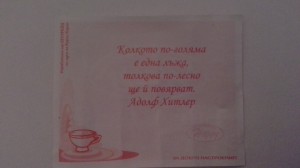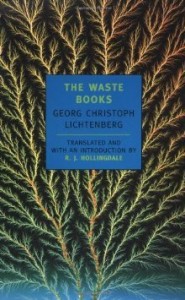Javier Marias, the eminent Spanish novelist, has recently published a text “Seven Reasons Not to Write Novels and Only One Reason to Write Them” in the Threepenny Review (and reprinted by the Independent). You can read Marias’ text here:
http://threepennyreview.com/samples/marias_su14.html or here:
http://www.independent.co.uk/arts-entertainment/books/features/javier-marias-there-are-seven-reasons-not-to-write-novels-and-one-to-write-them-9610725.html
I was dumbfounded by this article and like to comment on it.
First, it is very superficial to give the impression that the reasons not to write and publish novels outweigh the reasons to write and publish them by 7:1 – this is not a football match Germany-Brazil, Mr. Marias, but a question that is decided on an individual basis by each (potential) novelist and by each reader of novels based on qualitative and not on quantitative criteria. I suppose that any “real” novelist (you use the term without defining it) doesn’t make a list first with reasons “Why I shouldn’t write this novel” and another one with reasons “Why I should write this novel”. This is not how the mind of a genuine storyteller works – and I am sure you know that.
You claim, Mr. Marias, that there are already too many novels and too many people that write them – too many according to what criteria? If it is the quality of the books and novels we read – and I see no reason why we should waste our time to read badly written, boring or uninspiring novels – then there can be never enough novels and enough novelists that write them. And no, Mr. Marias, the existing novels are not “demanding to be eternally read” (at least they never raised their voice with such a demand when I am standing in front of my book shelves). Many of the novels that were published up to now will fall into oblivion in the future because the readers will decide not to read them anymore and maybe because they will prefer to read some of the novels that will be published in the future and which they will consider as more interesting, entertaining, relevant to them.
And, Mr. Marias, with all due respect, but why are you such a snob? Because novel writing doesn’t require (in theory) a higher education or special training, you seriously assume that any potential novelists will not write or publish a novel? Because it is, as you say (and I strongly disagree), an activity that “lacks merit and mystery” and because (potentially) everyone could do it, any novelist will in all seriousness decide not to write his novel? I rarely came across a more snobbish and conceited statement by an intelligent person and writer I otherwise admire for his published novels.
My strong guess, Mr. Marias, is that neither Goethe, nor Flaubert, nor Tolstoy, nor Kafka wrote or published novels in order to become rich – and that is true for probably 99.99% of all novelists. (The bunch of Dan Brown, Paulo Coelho, and the like I consider as hacks, not as serious writers)
The same goes for your argument that a novel is not a guarantee of fame. Maybe I am naïve here, but isn’t the main driving force for all storytellers and writers the wish to tell and share a story that is meaningful to them, in the hope it might be entertaining and even captivating to others as well? An author that starts his writing process with the thought of possible immortality is in my opinion a case for a therapy. So why exactly do you picture your colleagues as being driven by the strong wish to make busloads of money and to become immortal and world famous?
And no, Mr. Marias, also your sixth reason not to write a novel is ridiculously wrong. Writing novels (or any other kind of prose) indeed flatters the ego – maybe in another way as you seem to imagine, but it does. To be able to tell a story that is gripping readers or listeners can be an extremely rewarding activity, as you should know better than me.
And, Mr. Marias, please stop whining about the “abnormal life” of writers and the “great sufferings” they have to experience. They are not suffering more than any human being, and not all of them are alcoholics either.
But when you are trying to tell us, Mr. Marias, that only brilliant people like yourself should publish novels in the future, I will gladly forgive you. For I will trade with the greatest pleasure one hundred shallow articles like this one of yours for one page of your next novel.
© Thomas Hübner and mytwostotinki.com, 2014. Unauthorized use and/or duplication of this material without expressed and written permission from this blog’s author and/or owner is strictly prohibited. Excerpts and links may be used, provided that full and clear credit is given to Thomas Hübner and mytwostotinki.com with appropriate and specific direction to the original content.






 Facebook
Facebook RSS
RSS Twitter
Twitter